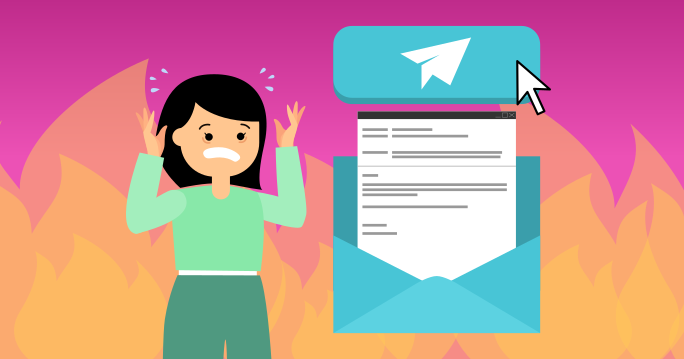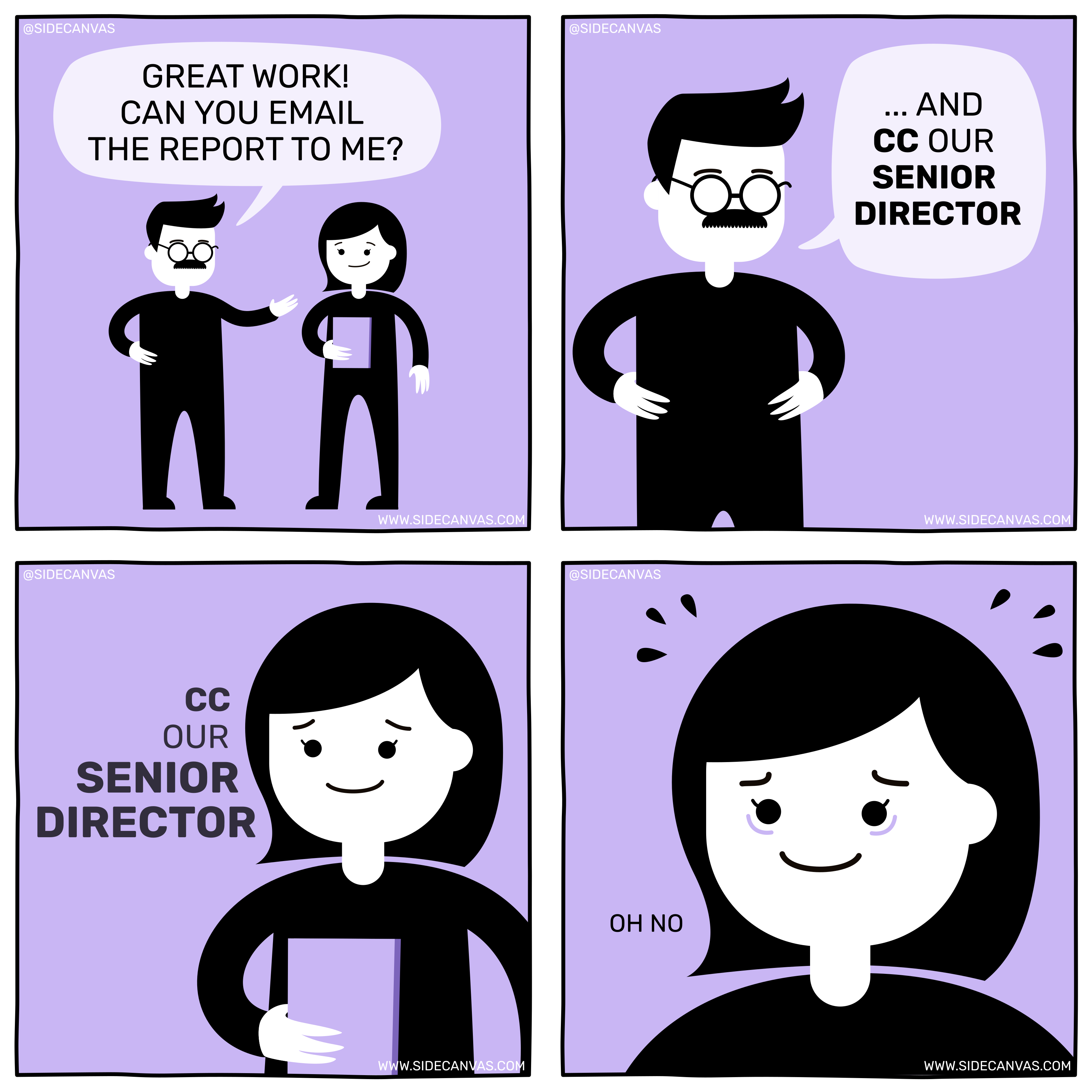Anxiety from Sending Emails

Writing business emails can be quite stressful. Professionals breaking into the office workplace often experience anxiety while sending emails. Many overthink basic email etiquette and ponder trivial word choices. This anxiety is a minor inconvenience at most, but if you’ve ever experienced this, you would know that it can be quite mentally taxing and time-consuming to deal with.
Stressing over trivial details while writing emails
If you’ve ever typed up an email to your boss, professor, or hiring manager, you’re likely all too familiar with the dreaded “email sending anxiety”. It usually happens when you’re sending an important email or if your recipient is someone you want to impress. You worry over every minor detail and stress over trivial matters like:
- What email greeting should I use? Is “Hi” too casual? Is “Dear” too old-fashioned?
- How do I address the recipient? Full name? Title? To Whom It May Concern?
- How should I sign-off my email? Is “Best Regards” too generic?
- Does my email strike a good balance between friendly and professional?
- Is my writing style going to get the intended tone across?
- Should I use an emoji if they sent one to me last time?
- Should I reply all?
- Is my message even important enough for an email? Should I just call instead?
You find yourself obsessively re-reading your message, overthinking every single word. Only after you’ve exhausted all your energy proof-reading, do you finally hit send.
You check the clock and see that half an hour has passed. Thirty minutes to write two pathetic sentences.

How to stop overthinking emails?
1. Realize that emails are… just emails
There are many situations where email sending anxiety can arise. In each situation, the main cause of stress can be boiled down to the fear of looking stupid.
When writing to our superiors, we feel the need to craft the absolute perfect email. We want to show our competency and shine bright.
Writing proper emails is important, but there is no need to pull your hair out trying to write a masterpiece. Even if you read over it a hundred times and optimize your word choice to get just the right tone across, it’s just an email at the end of the day.
2. Practice writing
If you want to stop overthinking, you need to accept the reality that nobody else is overanalyzing your emails. That being said, it’s certainly easier said than done. Fortunately, the more emails you send, the easier it becomes over time. You’ll become faster at writing and hone your proofreading skills.
As you gradually refine your writing style, professional emails will begin to feel more natural and come second-nature.
3. Read from the perspective of the recipient
In terms of overcoming email sending anxiety, reading other people’s emails can help a lot as well. Not only can you pick up some handy writing tricks, but you also get to read from the eyes of a recipient.
Stepping into the shoes of the reader, you can fully grasp just how little attention you pay to the details that others put in their emails.
As a reader, you’re more focused on the main point. If the sender put any extra thought and detail into their message, you probably didn’t even notice it.
Keep this perspective in mind next time you’re scratching your head about the most polite email salutations or the friendliest email sign-offs. Just pick something simple and move along!
4. Focus on the mistakes that matter
Instead of focusing on trivial details, it’s important to put your full attention on what people do notice: embarrassing typos and other glaring errors.
- Is their name spelt correctly?
- Is your name spelt correctly?
- Are you sending it to the right recipient?
- Is the company name right?
- Did you remember to include the attachment? Is it the right attachment?
These mistakes are more noticeable but are luckily easier to catch.
You don’t need to read over your email a hundred times. Just once or twice is enough, but you need to make sure you give it your full attention.
Read every single word. Check every attachment. Verify all the recipients and CCs are correct.
Some of the worst mistakes can slip right under our noses and it happens because we didn’t focus on what mattered.
